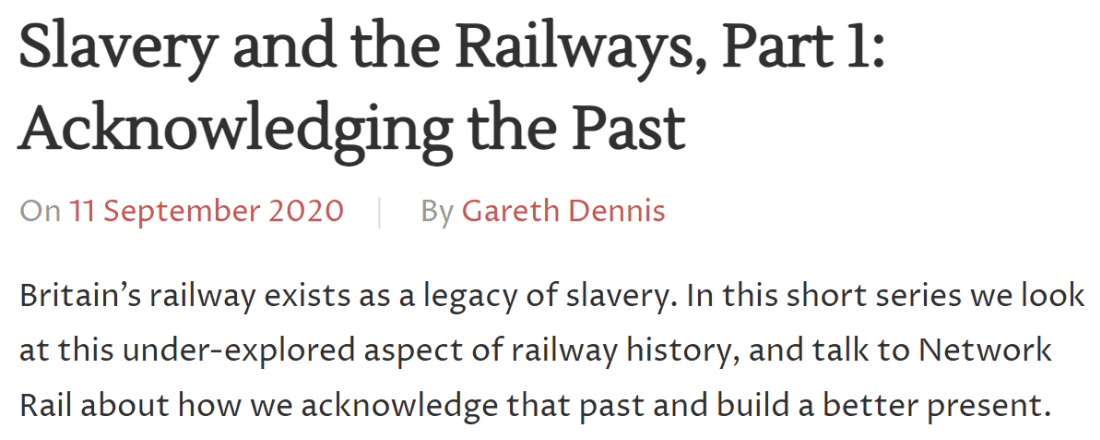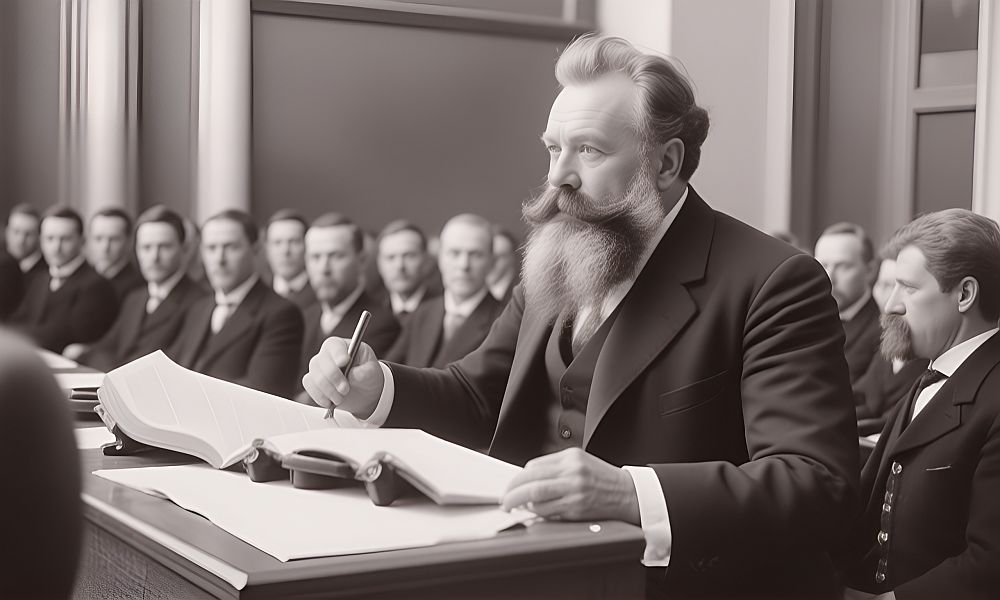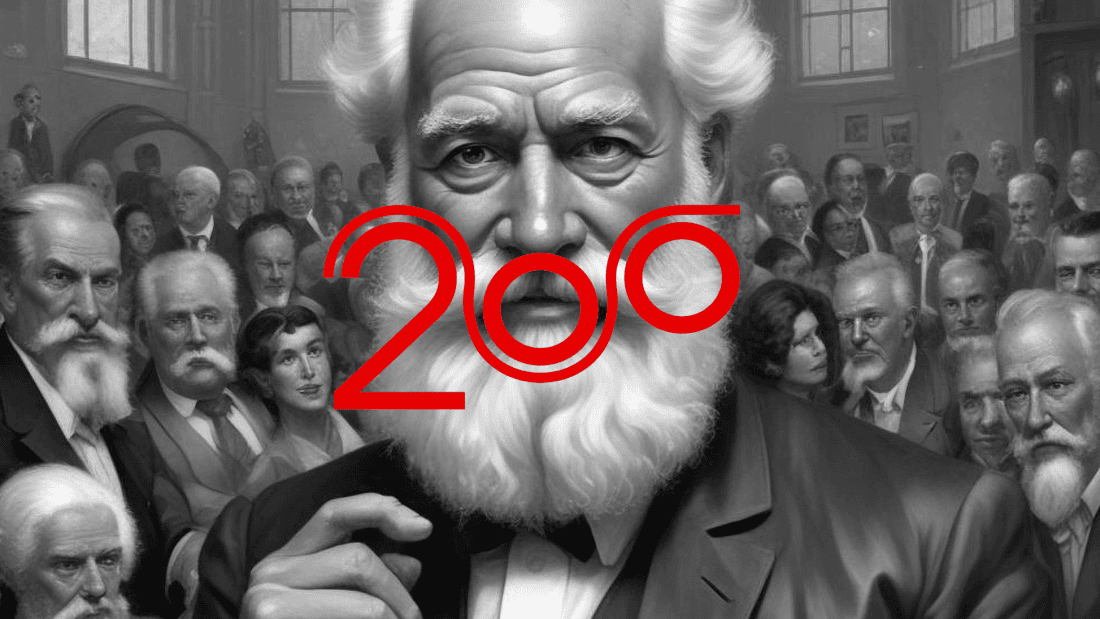This is a bête noire look at the railways so if you are easily offended please don’t be. That because this is not a subject to enthuse over in terms of the 200th anniversary of the railways. Basically the railways created a lot of problems and there’s no doubt of that. In Railway Defamiliarisation by Malgorzata Nitka (2000), a number of negatives are listed. There’s the illusion of comfort, the brainwashing of the passenger, disempowerment, the distortion of time, and the enhancing of the class division.
‘Railways will only allow the masses to move restlessly and aimlessly about’ was something the Duke of Wellington had concerns about. No doubt at the dawn of the railways many people had concerns besides that including people not being able to breathe as the trains sped along and the rest of it. Many of the concerns were fallacious. In real life however, the railways issued an enormous sense of power and were basically ‘a carrier of hegemony.’ They were used as a means of political control over the masses in India – a tool no doubt used to enforce Britain’s discredited colonial project. (Karthika R. & Anjana J, 2022).
There’s no doubt the above examples are how the railways create conditions that are questionable, or immoral even. The next, that of slavery, is the railways were built with money that was paid out as per the Slavery Act 1833. That was quite immoral. The main example that follows is how the railways’ profits helped perpetuate questionable ideologies including eugenics and racism. No doubt that was quite immoral too.

Gareth Dennis’ article in London Reconnections.
When Gareth Dennis extolled the fact the railways were a prime driver of slavery and a substantial work was published as a result in London Reconnections everyone sat up and took notice. I did too – and read his writings with great interest. But then I thought to myself, what about the support the railways had enabled for those who thought my kind of brethren should not exist?
Gareth Dennis indicated the question of slavery in terms of its rail-borne connections were practically non-existent. The facts re slavery no doubt existed but they were very hard to find. ‘On the one hand is the overwhelming evidence of slavery’s deep-rooted impact on modern Britain; on the other is a near vacuum in published material looking at how the railways fit into that picture.’
He says ‘History is as much – if not more so – about identifying the gaps in society’s knowledge as it is about tying together what is already known.’ In that respect Gareth is exactly right. In terms of gaps, there are things the railways are responsible for things that are not even acknowledged. This specially researched post is about one of those things and its a means of presenting the various threads needed to tie the subject together.
Its said the railways existed because copious amounts of money was paid out to those who lost out when the slave trade was abolished. The law to pass the total abolition of the trade took place in 1833 and that involved dispensing compensation to those entrepreneurs who had traded in slavery. A substantial amount of that money stayed in the hands of these entrepreneurs, and most of it was used as investment for the new railways that were then beginning to be constructed.
The number of times I have mentioned on social media a subject that is no doubt right in my face every living day that I endure, simply no one has taken the slightest bit of notice. Brief mention of the railways’ quest has been made on this blog in regards to the idealistic notion everyone should speak and how it showed up – even on good old British Railways. Very recently someone admitted to me the railways did in general promote a certain ideology – a form of acerbic treatment doled out to deaf passengers – and they had seen this in practice with their very own eyes.
How did that particular game work right at the dawn of the railways? Well, what happened is investors were enthused about the money to be made from railways and many entrepreneurs were involved. The money that was poured into the railways conversely found its way into the coffers of others who had ideas, not about slavery, but about getting rid of certain groups of people and those ideas were no doubt both racist and eugenicist.
What follows is but a quite brief introduction to another unsavoury side of the railway that arose besides the slavery that’s been discussed by Dennis and others.
Evidently the impressionable ways the railways elevated the notion of speech and hearing (and still do nowadays) was some of the railways’ most prominent financiers took a fancy to the notion that the Deaf were a problem to be solved. Such ideas soon culminated in the theories postulated by Alexander Graham Bell which no doubt indicated speech should be an enduring quest for a new found supremacy. After all Bell, by way of his telecommunications invention (the phone), this enabled the railways to communicate across incredible distances and it’s something the railways have been grateful for.
If one sees BSL screens (or other sign languages) dispensing information at railway stations, well it’s not even apology enough. Its like ending racism/slavery and then pretending that had never happened. Recently many statutes were toppled because evil men (and there were many) had dealt quite substantially in the slave trade. Thus one knows the anger and the sensitivity behind racism and slavery.
To insinuate that speech is supreme also constitutes a huge problem and yet it was one promoted by the railways. Its an ideology that exists to this day yet it doesn’t carry the same anger that racism does. The Nazis no doubt loved eugenics, the very thing Alexander Graham Bell had begun, and they took to it that the Deaf should essentially be the first to be dealt with – long before the railways began transporting people en masse for the Nazis’ horrific final solution. One can only tremble at the thought that some people really do get very perverse notions about others – and its incredibly backwards and dangerous.
Anyway, it took a man from the British Isles, a Scotsman in fact and that’s our Mr Bell to be more exact, who promoted an ideology that was ultimately recognised as having a very dubious foundation. Alexander Graham Bell wrote a book warning of the formation of a ‘deaf variety of the human race.’ It took the railways, not necessarily the English or Scottish companies for that matter, but European ones rather, to achieve the money generating in order to promote the ideals Bell would eventually benefit from.

AI image of Alexander Graham Bell at a conference promoting his ideas.
After all, Bell didn’t think deaf people should be given any sort of prominence (racism came into it at some later point too for certain racial groups were in due course also targeted by the man’s unfortunate views). Bell decreed that deaf people were a problem. Basically what Bell had written was a 45 minute warning. Back then it wasn’t even 45 minutes but perhaps 45 weeks or something of that order. The world took great heed upon that warning. In the event it proved to be absolutely false, just like Blair’s 45 minute warning was. However like Blair, Bell was no doubt viewed as ‘a reliable and established source’. His international repute and his venerated inventions helped enormously. There was a crusade that resulted and there were victims. And today there are still victims being procured as part of that crusade. Its just not quite so obvious.
Why was there a ‘problem?’ Imagine the railways populated by deaf people working on the lines, all signing, struggling to communicate and numerous train crashes occurring? Well you get the picture. The world couldn’t have that could it? Speech was no doubt the absolute minimum for communication and its for that reason Bell warned the world a growing Deaf race would pose great dangers.
As the business of slavery faded away, the railway backers diversified into eugenics. Communication, as illustrated, had to be a positive thing and enabled by way of speech and not sign. Thus the Deaf constituted a danger to the world. Bell issued substantial concerns that Deaf people were associating and socializing with each other. The worse of it was the Deaf marrying other deaf people. This was evidence enough a ‘deaf race’ was in the making.
Thus European railway financiers sponsored a series of quests. They were brothers and by way of the shares they held or the amount of money that had been invested, they too were the owners of a number of French railways. No doubt a lot of income was generated which was used for other purposes such as building hotels. And there was worse.
One of those other things happened to be the infamous Milan Congress. If one does not know what this is, well the purpose of that was to set up shop and announce to the world that the fight against Deaf people had well and truly begun. The quest to shut down those who potentially constituted a slight upon the world had begun. Recently UNESCO acknowledged the congress’ effects and agrees it continues to have substantial impact in the 21st century.
Deaf people wouldn’t even have a say in any of the subject matter to be discussed at this particular congress. It would all be hearing people. Imagine the modern day outrage if it had been white people setting up shop to promote activities like apartheid, lynching, even slavery, or any number of other unspeakable activity – but since this was the Deaf, no-one took the slightest bit of notice. That’s how its proponents easily rose to the challenge. And that’s how it continues its stealth today – which is that its largely unchallenged because everyone speaks.

The Pereire brothers. Wikipedia.
Anyway the railways (or their financiers rather) gave loads of money to aid the cause which held belief, as per Bell, that Deafness was a thing to be fought against and eliminated. The main financers in this respect were the Pereire brothers who were involved with a number of European railway systems. The brothers, Émile and Issac, were pioneers in getting a substantial part of the early French railway system built. As a sort of memorial, Gare St. Lazare in Paris is the biggest station ever built by the Pereire brothers.
Like Bell there too was an issue of deafness in the Pereire family. In the case of Bell it was his mother and his wife. In the case of the Pereires, it was their grandfather who had been one of the first to teach deaf people to speak. There are documents that show the Pereire brothers intended to oversee the promotion of speech and ensure sign language was abolished.
One might wonder how railway financiers could be responsible for such misdemeanours. Well much in the same methodology as the slavery trade, it can too be shown some of the returns from the railways went into the coffers of those who desired such eugenicist ideals. And it was all because Émile Pereire had visited England to learn about its new railway system – and discovered the huge amounts of money that could be made. There is a risk too some of the compensation money as a result of the 1833 act too found its way into France’s sibling railway system.
M. Emile Pereire is due the honour of having first impressed upon his countrymen the advantages which must arise from the adoption of this mode of transport.” With much difficulty he succeeded in forming a Company for making the short line between Paris and St. Germain. The Act for its construction was obtained in July 1835, and it was opened for traffic in December 1837. (Project Gutenberg).
The Pereire brothers were responsible for driving a sordid ideology, creamed off the profits made from the railways. The eventual result was the Pereire Committee, whose ideal was to promote the ideas that have just been discussed. One result of this committee was the International Conference at Milan in 1880. By the time it came to the really bad stuff, it was Eugène Pereire, the son of Issac Pereire, who continued the committee’s sordid quest in favour of the now departed brothers.
As has just been mentioned, the infamous Milan 1880 Congress began. One of the purposes of the Pereire Committee was to organise these Congresses as well as promote other ways of ensuring that those who used sign language would be eliminated. Several years before, this being around 1873, the committee had styled itself as the ‘World Congress for Improving the Welfare of Deaf-Mutes.’ (When the Mind Hears, Lane, 1984 p463). A school was established to give education to the deaf by way of speech. The first proper ‘congress’ to be organised took place during the Paris Universal Exposition of 1878, followed by the even bigger one in 1880. As the Wikipedia entry for the congress notes, finance from the railways most certainly played a part in enabling that largely discredited conference to take place.
Alexander Graham Bell never attended the Milan 1880 conference although he and the Pereire Committee in all likelihood had some contact. Bell wrote reports and books following the congress because that conference had been a defining moment and it gave Bell the impetus the ease with which he could further publicise his ideas and offer what were no doubt touted as solutions. Seeing there was now indisputably a world wide crusade against the Deaf, Bell churned out stuff and toured the world in order to lecture upon the problem of those who used sign language.
In brief the fall out was Deaf people would not be allowed to marry. If they wanted to they could marry hearing people no problem. (See the game that is being played?) This was one way Bell thought would prevent those oh so extremely dangerous Deaf people spreading like wildfire and bringing the world to it’s knees. Oh the irony of it all!
One might perhaps think. ‘Wow! So it was the French who came up with this massively contrived idea that the railways should, besides slavery, too dabble in these other begotten, quite miserable, causes!’ Well at least it wasn’t the Brits….
Aha, don’t hold yer hopes up just yet! Tentatively what comes next are Britain’s possible connections in terms of the subject at hand…
The Great Central Railway was meant to be an International Railway for Edward Watkin had a number of interests in France’s railways – especially the Chemin de Fer du Nord initiated by the Pereires. Watkin was on the company’s board of directors by about 1873. Whether he knew the Pereire Committee or the brothers themselves is open to question.
Watkin had perhaps been the last in a long line of railway barons who looked to the continent for new opportunities, so perhaps in all honesty he didn’t even have a clue what went on. Long before Watkin looked across the Channel, the Pereires had looked in the opposite direction with a view to attracting British capital for new railway lines. The Chemins de fer de Paris à Lyon et à la Méditerranée had three English directors. Several others were represented by a French rail mogul known as Baron Seillière. One of the names on that list was Joseph Locke the noted British railway engineer (Internet Archive).
Joseph Locke had substantial interests in France and some of the contractors he had on his books too had French interests. Those interests were also represented by Baron Seillière. Joseph Locke and Thomas Brassey had the largest slice of British investment in the Paris and Lyon railway. There were of course others who also invested heavily in the new railways being promoted by the Pereires.
Other examples include Christophe-Eugène Flachat the engineer who was responsible for the Chemin de fer de Paris à Saint-Germain. Marc and Isambard Brunel were friends of Flachat’s as too was Stephenson, and in the midst of all that, it was the Pereires who were the Paris and Saint-Germain’s promoters. Its not to say there were issues that arose but rather there were things that on the face of it, looked somewhat dodgy. Evidently further research is necessary in order to find out if money flowed in ways that could be considered suspect.
In some of these instances there’s also a possibility money from the 1833 slave trade compensation might have found its way to the Pereires. Its not to say anything untoward definitely occurred, but merely that there are avenues of enquiry that could be pursued to establish what, if anything, went on. Anyhow this basically is where the trail currently ends, for quite substantial research would be needed to investigate further – and that because there is ‘a near vacuum in published material looking at how the railways fit into that picture.’
Railways 200 was first featured on another blog – hence the publication date of 2nd January 2025.

